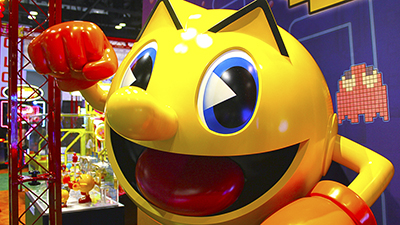The gaming and amusement industry has endured many trials and tribulations in recent years but continues to be a business with a bright future, writes Simon Liddle.

ONE of the many irritating things about me, I’m reliably informed by those close to me, is my tendency to identify the manufacturer and title of gaming and amusement machines when ‘off duty.’ It’s a habit formed quickly, having joined InterGame without any real prior knowledge of the industry other than those many hours spent during summer holidays inserting coin after coin into the pushers in Scarborough’s seafront arcades.
Now, when I find myself in an amusement location I find myself ticking off a list of manufacturers in my head… That’s Sega’s… One from Benchmark… LAI’s latest… That’s new from Namco…
It is an industry that pulls you in and, I’m told, rarely lets go. It also continues to attract incredibly bright minds and is therefore far more cutting-edge than outsiders may think. With only a handful of years in the industry to call upon, I still include myself in the ‘outsider’ category and am constantly surprised by just how quickly new technologies are introduced in new and imaginative ways to this sector.
One of the first applications for the much talked about Oculus Rift technology from Oculus VR, for example, will be a redemption game in Chuck E. Cheese’s locations. Looking at that first issue of InterGame, one of the most striking things is how technology has shaped the sector over the past two decades. The evolution of video games, the emergence of the ticket redemption concept and the move from mechanical reels to the endless possibilities of video in gaming machines are all evidence of this.
Much of this development has been through necessity, given the challenges of the last 20 years. For one, the video game revolution of the 1980s seemed to come to an abrupt end when the games console became ubiquitous in homes around the world. After all, why pay for only a small portion of the software each time when consumers could have the whole game? The popularity of video games has perhaps never been as great, yet the way people choose to play them in the home has posed tricky questions for the coin-op industry.
Thankfully, the sector refused to stand still and, recognising this change, identified a gap in the market for family entertainment. Today, ticket redemption is the fastest growing sector of the market and even in the UK, with its curious tradition of amusements and gaming side-by-side, operators have embraced it. Having seen players move away from traditional forms of play – those carnival games that seem second nature – they are now witnessing a revival in mechanical games that, crucially, appeal to all ages.
Read the full article in the August issue of InterGame

